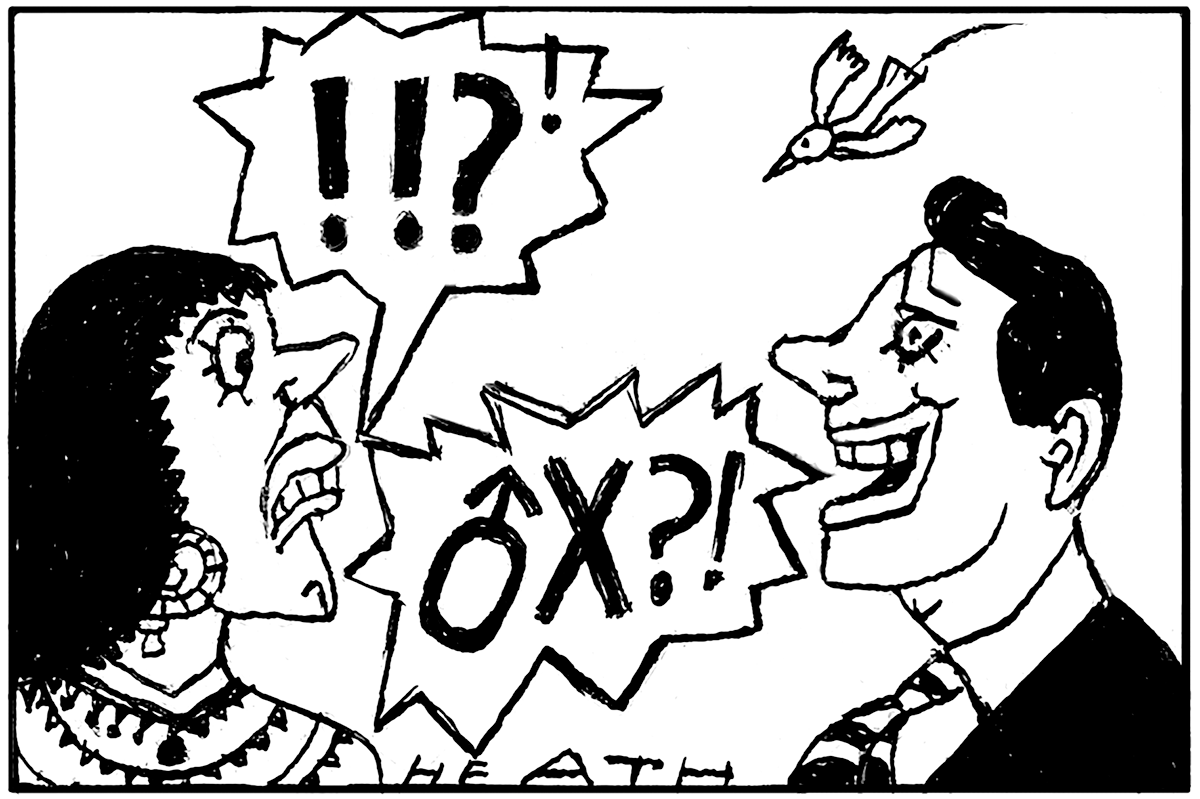This is the article I have thought about writing for years, but I have always ended up asking what would be the point. And how annoying that some people would call it “brave,” meaning shameful.
I’ve always earned a lot less money than my wife. There, I’ve said it. Is that still a big deal these days, a difficult thing to admit? Yes and no — and the ambiguity is rather interesting. Our culture claims to be liberated from old stereotypes about gender roles. But is it hell. Even its progressive urban elite is ruled by stubborn visceral traditionalism when it comes to gender and money.
I’m prompted to share these thoughts by a news story. An economist at Durham University called Demid Getik conducted a study of 20,000 Swedish couples to see whether “expectations about breadwinners” have been changed by egalitarianism. He found that husbands who are out-earned by their wives are 11 percent more likely to have mental health problems. “It seems like there is a certain preference still to have the male in the family earning more,” Getik said.
I texted my wife the story, adding the words “No shit.” She replied with a laughing-crying emoji. She is too busy at work to write long texts. I was idling my day away in a public library before doing a few hours’ teaching.
When we got together in our late twenties, twenty-five years ago, the writing was already on the wall. I had just finished a PhD in theology, which is the career equivalent of cutting your legs off before starting a running race. She had tried being a teacher, then drifted into a job at a design and marketing company, which felt a bit random and strange to her, but she found she could do it, so she got on with it. After a couple of stabs at employment, I drifted into freelance writing, which is the career equivalent of pretending the running race doesn’t even exist.
By now you will have a lot of questions, good questions. Do we have children? We do.Who does most of the domestic stuff? Guess who. Has our dynamic led to tensions? What do you think?
The middle question is interesting. Maybe you guessed me. For there are allegedly nowadays men who are happy house-husbands. But have you actually met one? Of course, when the children were little, I pulled some of my weight. I did a lot of childcare (I mainly remember making a lot of toast, as well as driving them to the babysitter). I am being careful not to slip into a flippant tone here, because it would be juvenile to lapse into childish boasting about not knowing where the mop is kept. But the sober fact is that the core domestic stuff — cooking, doing the laundry, making the house nice — is just something that I have less feeling for than she does. Sure, call it weaponized incompetence if you like.
I’m evading the issue somewhat. The real issue is whether it remains psychologically difficult for men not to be the breadwinner. The clue is in that word, or the second half of it. For what is the opposite of a winner? It is important to have a clear alternative role if you are not the main earner. Traditionally, this was housewife. Nowadays plenty of women still have one foot in this role: they are not the main earner, but they are the main homemaker, so there is no problem. Well, OK, there are plenty of problems, but the regular ones. The old model is just updated.
If the man is not the breadwinner — and has the normal male attitude to domesticity — he probably needs to justify this approach, at least to himself. For he will almost certainly have a voice in his head, one that perhaps sounds a bit like his father’s, asking him why he is not manning up. It tells him that he ought to be the main provider — for two reasons that are interestingly in tension. To be the tough protector of his woman and children; and, more subtly, to retain power over said woman. Untangle those.
It’s surprising that my situation is still unusual. It seems the average couple, even if pretty modern-minded, makes an unspoken pact: the man must earn more or disorder will ensue. The god of male pride must be placated. I am not without male pride, but I suppose I have developed a slightly twisted version. I justify my predicament by saying that my writing is very important. I don’t particularly recommend this line of defense.
I belong to a new chapter in the long story of the egocentric male writer or artist or wannabe. In the old days, if one was too creatively inclined to hold down a job, one had to scrounge off rich relatives, find a patron or starve. It is a new development that one can, if lucky, find a wife to fill this role.
How does my role relate to feminism? Ambiguously. I am benefiting from the overstretching of the modern woman, who runs the home despite holding down an incredibly demanding job. But I am also helping to erode the old patriarchal stereotype. Which is brave of me, remember.

























